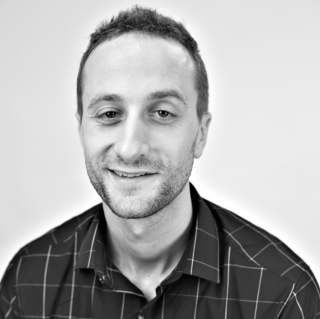
AL DÍA hosts first ever Higher Education Summit
In perhaps the day’s most moving session, the summit’s third theme highlighted the personal experiences of two medical students at Drexel University, Paulina…
Last Thursday, AL DÍA held its first ever Higher Education Summit to address and discuss pressing issues of education that the Latino community faces in Philadelphia and nationwide today.
An array of policy experts, academics and local politicians working in the field of education attended the all-day event, which was held at the Pyramid Club in Center City Philadelphia.
Following a welcome address by AL DÍA Founder and CEO Hernán Guaracao, and an introduction by Cabrini University’s Acting Provost and Vice President for Academic Affairs Mark Kiselica, the summit featured four theme-driven sessions.
The first of these sessions addressed the current national context of Hispanic higher education.
Dr. Manuel Gonzalez Canché, an associate professor at the University of Pennsylvania, kicked this off with a presentation detailing his own journey through higher education and academia.
Born in Mexico and of Mayan descent, Canché noted that his path represents hope that upward mobility can happen.
Using his personal experience as backdrop for his insight into the state of Latinos in higher education, Canché went on to argue that a “scarcity of achievement, among Hispanics, is not due to scarcity of talent.”
“One of the best strategies that any society can implement to close socioeconomic and academic gaps is to invest in low income, talented students,” he added.
Pennsylvania’s Deputy Secretary and Commissioner of Postsecondary and Higher Education Noé Ortega followed with a spirited speech in which he asserted that many institutions of higher education were often not founded, much less designed, for groups that traditionally have not had as much access to higher education in this country, such as Latinos.
Following a short break, Deborah Santiago, the Co-Founder and CEO of Excelencia in Education, and Dr. David Hurtado, the Interim Executive Dean at Esperanza College of Eastern University, delved into their presentations on the best practices surrounding the recruitment and retention of Hispanic students.
Santiago emphasized the need for academic institutions to invest in the education of their Latino students - and not just view them as nice contributions to enrollment figures.
“We are seeing institutions that are just finding Latinos for enrollment growth reasons," she said, adding that enrollment is not enough - you have to serve Latino students, too, and view them as an asset.
Meanwhile, Hurtado recalled his childhood growing up in poverty, which helped shape his perspective as a higher education administrator today.. He described Esperanza College of Eastern University as one created to serve the Hispanic population, as well as other underserved communities.
“There are a lot of people who are not high achieving, but if helped, they may discover the high achieving person within them,” he said
In perhaps the most moving session of the day, the summit’s third theme highlighted the personal experiences of two medical students at Drexel University, Paulina Ramirez and Alfredo Muñoz.
RELATED CONTENT
The two doctors in training shared with attendees their own journeys in education, and how they eventually arrived at where they are today.
For Muñoz, a supportive family and his own pursuit of excellence helped fuel the steps he has taken to realize his success, he said.
Ramirez, meanwhile, discussed her “first true heartbreak” - she was rejected from every medical school she applied to during the first round of applications she sent out. Instead of allowing that obstacle to discourage her from the career she knew she wanted to pursue, Ramirez reached out to the schools that rejected her, to learn what she could do moving forward to make medical school a reality in the future.
She has been in Philadelphia for five years now, and volunteers at local schools in the area, sharing her story with students of similar backgrounds.
The final theme of the day centered around partnerships, programs and initiatives that seek to recruit, retain and support Hispanic students.
Dr. Gloria Bonilla Santiago, a Board of Governors Distinguished Service Professor at Rutgers University, shared her experience founding LEAP Academy, a K-12 charter school in Camden, NJ, and explained its structure as an educational pipeline starting at birth and running through college, employing an holistic approach.
“Parental engagement is critical for advancing the Latino community,” she said.
David “Rico” Ascencio and Virginia Ramirez, both of whom work at Community College of Philadelphia, gave a presentation on the efforts that their institution makes in this area. Elisha Moreno of Reading Area Community College and Mark Kiselica also shared their schools’ track records and best practices.
The Higher Education Summit concluded with a call to action given by Pennsylvania’s Education Secretary Pedro Rivera.
“There isn’t a job gap in Pennsylvania,” he noted. “There’s a skills gap in Pennsylvania.”











LEAVE A COMMENT:
Join the discussion! Leave a comment.